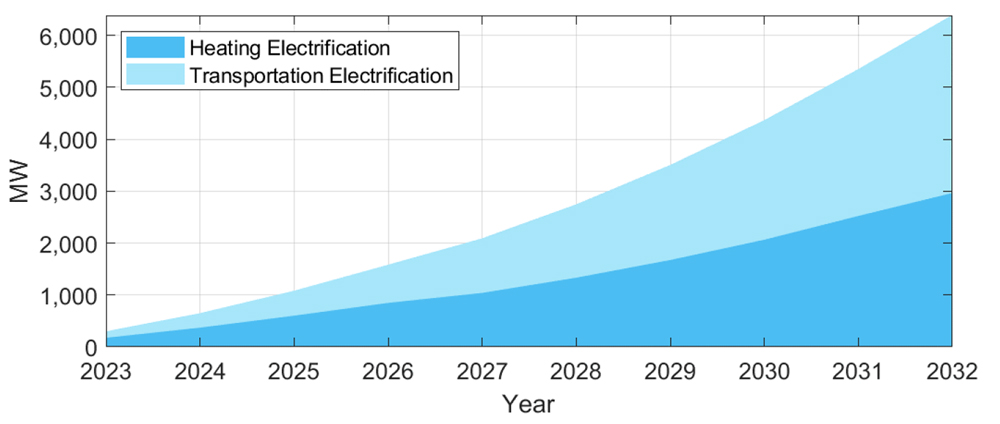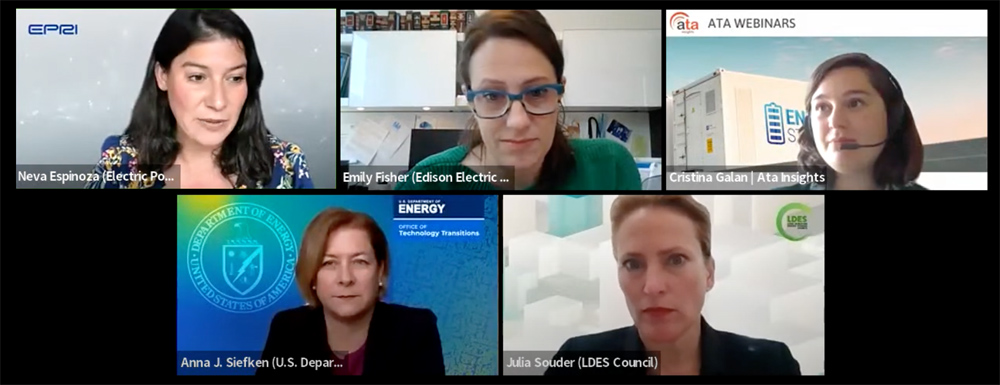The ERCOT Independent Market Monitor’s annual market report on the Texas grid released Wednesday recommends resurrecting a multi-interval, real-time design similar to those used in other markets and re-evaluating and prioritizing it for future implementation.
The Monitor notes that real-time markets rely primarily on online and quick-start resources. It says a real-time market efficiently dispatches online resources and sets nodal prices that reflect energy’s marginal value of energy at every location, but that ERCOT lacks the software and processes to facilitate efficient commitment and decommitment of peaking resources that can start within 30 minutes.
“This is a concern because suboptimal dispatch of these resources raises the overall costs of satisfying the system’s needs, can distort the real-time energy prices and affects reliability,” the Monitor says in its 2022 State of the Market report. “For these reasons, other markets have implemented this type of look-ahead process to optimize short-term commitments of peaking resources.”
The Monitor says the value of access to and optimally using fast-starting dispatchable resources will only grow as do ERCOT’s more intermittent wind and solar resources. A multi-interval dispatch model can meet these increasing ramp requirements by recognizing system needs further into the future and beginning to move dispatchable resources to optimally satisfy, it says.
ERCOT evaluated the model’s potential benefits in 2017 but decided not to move forward because the costs were greater than the projected benefits, according to the IMM. “Much has changed since” then, it says, pointing to a higher level of renewable resources available to the grid operator.
“We believe benefits will be much higher in the future, and this capability will become essential for managing the growing renewable fleet,” the Monitor says.
The proposal is one of five new recommendations added to eight holdovers. Other new suggestions include:
- instituting a 100% claw-back of excess market revenues for reliability unit commitments, as the incentives for self-committing resources have changed “dramatically” with the increased frequency of RUC instructions under ERCOT’s more conservative operations posture;
- allowing transmission reconfigurations for economic benefits, instead of just for reliability;
- changing the linear ramp period for emergency response service summer deployments to three, down from the current 4.5-hour parameter that artificially inflates the reliability deployment price adder; and
- modifying the lookback period for operating reserve demand curve mean and standard deviation calculations to a rolling five-year period, which would have saved more than $160 million last year.
The IMM also says real-time co-optimization (RTC), which was postponed after the February 2021 winter storm, should be prioritized, “given its promise to improve pricing during supply shortages” and to better use the existing generation fleet. The grid operator is expected to restart the RTC project this summer, with a new potential go-live of 2026.
The market report finds ERCOT’s markets performed “competitively” and “little evidence” that suppliers exercised market power, with one exception: It says the nonspinning reserve market became less competitive as higher procurements caused large suppliers “to frequently be pivotal,” raising the reserve product’s costs from $385 million to $480 million from August 2021 through December 2022.
ERCOT’s average load grew 9.5% from 2021 and average real-time prices fell to roughly $75/MWh in 2022, down more than 50% from 2021 ($167.88/MWh), almost entirely because of the February storm’s effects. Prices reflected a real-time energy value of $32.2 billion last year.
New Grid Notifications Added
ERCOT on Wednesday rolled out a new notification system it said will provide “clear and reliable” communications with the public and greater transparency on grid operations.
The Texas Advisory and Notification System (TXANS) provides another means for the public to follow ERCOT operations and grid conditions that do not indicate emergency conditions are expected. It introduces two new notifications before NERC-mandated energy emergency alerts (EEAs): an ERCOT weather watch and a voluntary conservation notice.
The weather watch will be issued when possible severe weather and high demand is forecasted in three to five days. It is intended to alert the public to plan ahead in reducing their energy use during higher-demand periods.
 ERCOT CEO Pablo Vegas | ERCOT
ERCOT CEO Pablo Vegas | ERCOT
“This earlier lookahead gives the public notification of possible higher demand due to forecasted conditions,” ERCOT CEO Pablo Vegas said during a virtual press conference. “We’re then asking Texans to keep an ear out for more information should conditions change.”
The voluntary conservation notice will be issued when higher demand and lower energy supply are forecast. It will ask Texans to voluntarily conserve power, if it’s safe to do so. ERCOT will also request that local government agencies implement programs that reduce energy use at their facilities.
TXANS notifications will not replace EEA notices.
“All of the new notices that we are releasing at this point … are times when the grid is in stable and normal conditions and that they’re not in an emergency,” Vegas said. “We want to just help people be aware and informed on what’s going on. We want to be more transparent; we want to be more open and get people more comfortable with hearing from us under conditions that are not emergency conditions.”

